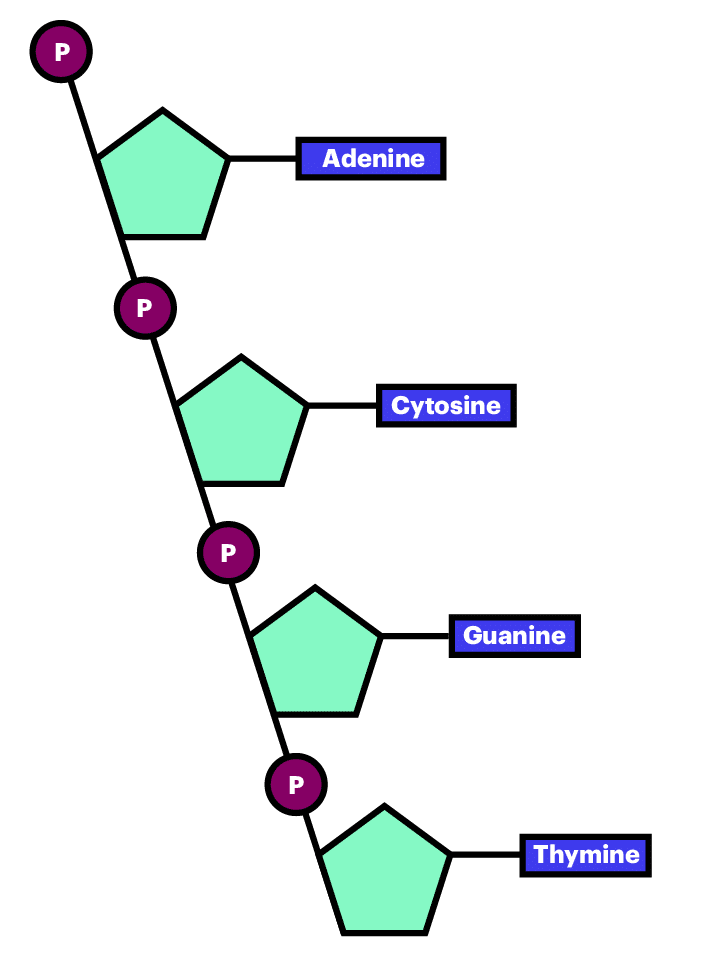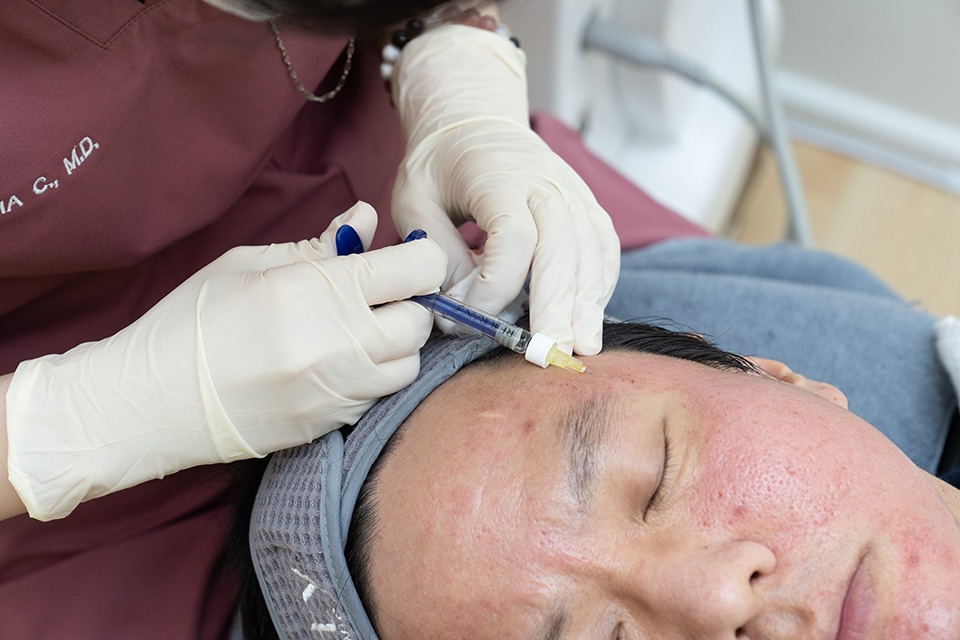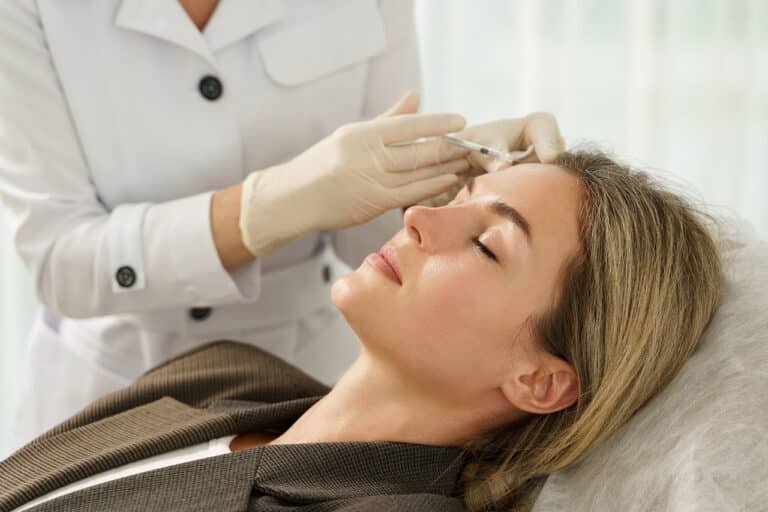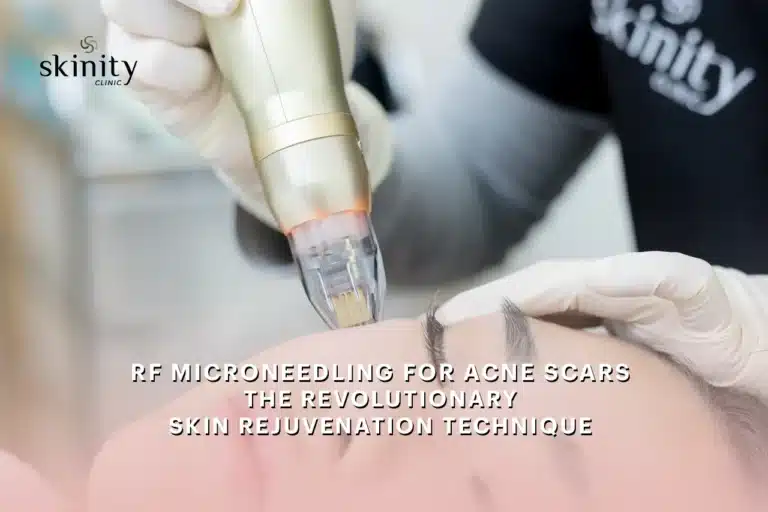Polynucleotide treatments are emerging as a revolutionary method in aesthetic medicine for skin rejuvenation and repair. Derived from DNA fragments, polynucleotides play a crucial role in promoting skin regeneration, improving elasticity, and providing deep hydration. In this article, we’ll delve into what polynucleotides are, how they affect the skin, and why they’re becoming a go-to solution for achieving youthful, radiant skin.
What Are Polynucleotides?
Polynucleotides are biopolymers composed of nucleotide monomers, which are the basic building blocks of nucleic acids like DNA and RNA. In aesthetic medicine, polynucleotides used for skin treatments are typically extracted from purified salmon DNA due to their high biocompatibility and safety profile.

How Do Polynucleotides Affect the Skin?
When introduced into the skin, polynucleotides stimulate natural regenerative processes. They:
- Promote Tissue Repair: Encourage the proliferation of fibroblasts, leading to increased collagen and elastin production.
- Enhance Hydration: Attract and retain moisture, improving skin hydration.
- Reduce Inflammation: Exhibit anti-inflammatory properties that help soothe irritated skin.
- Improve Elasticity: Strengthen the extracellular matrix, enhancing skin elasticity and firmness.
Benefits of Polynucleotide Treatments
- Skin Rejuvenation: Diminishes fine lines and wrinkles.
- Deep Hydration: Enhances moisture retention for plumper skin.
- Scar Reduction: Improves the appearance of acne scars and other skin imperfections.
- Improved Elasticity: Restores firmness and elasticity to sagging skin.
- Safe and Natural: High biocompatibility reduces the risk of adverse reactions.

Types of Polynucleotide Treatments
Polynucleotide treatments can be administered in various forms:
- Injectable Gels: Directly injected into the dermis for targeted rejuvenation.
- Topical Applications: Used in conjunction with microneedling to enhance absorption.
- Combination Therapies: Paired with other treatments like laser therapy for enhanced results.
One example of a polynucleotide-based treatment is Rejuran, also known as Rejuran Healer, which is gaining popularity for its skin rejuvenation properties.
The Treatment Process
- Consultation: Assessment of skin concerns and discussion of goals.
- Preparation: Cleansing the treatment area; application of numbing cream if necessary.
- Application: Polynucleotide solution is administered via injection or topical application.
- Post-Treatment Care: Minimal downtime; guidelines provided for optimal results.

Aftercare and Results
- Immediate Effects: Mild redness or swelling may occur but typically subsides quickly.
- Results Timeline: Gradual improvement over several weeks as collagen production increases.
- Longevity: Results can last several months; maintenance sessions may be recommended.
Are Polynucleotide Treatments Right for You?
Polynucleotide treatments are suitable for individuals seeking to improve skin hydration, elasticity, and overall appearance without undergoing invasive procedures. Ideal candidates include those with:
- Fine lines and wrinkles
- Dehydrated or dull skin
- Acne scars or skin imperfections
- Loss of skin elasticity
Conclusion
Polynucleotide treatments offer a cutting-edge approach to skin rejuvenation by harnessing the body’s natural healing processes. With their ability to improve skin texture, hydration, and elasticity, polynucleotides present a promising option for those looking to achieve youthful, radiant skin. Consult with a qualified aesthetic professional to determine if this treatment is the right choice for your skincare needs.
Ready to experience the benefits of polynucleotide treatments? Consult with our aesthetic practitioner today to determine if this innovative therapy is the right choice for your skincare needs.




